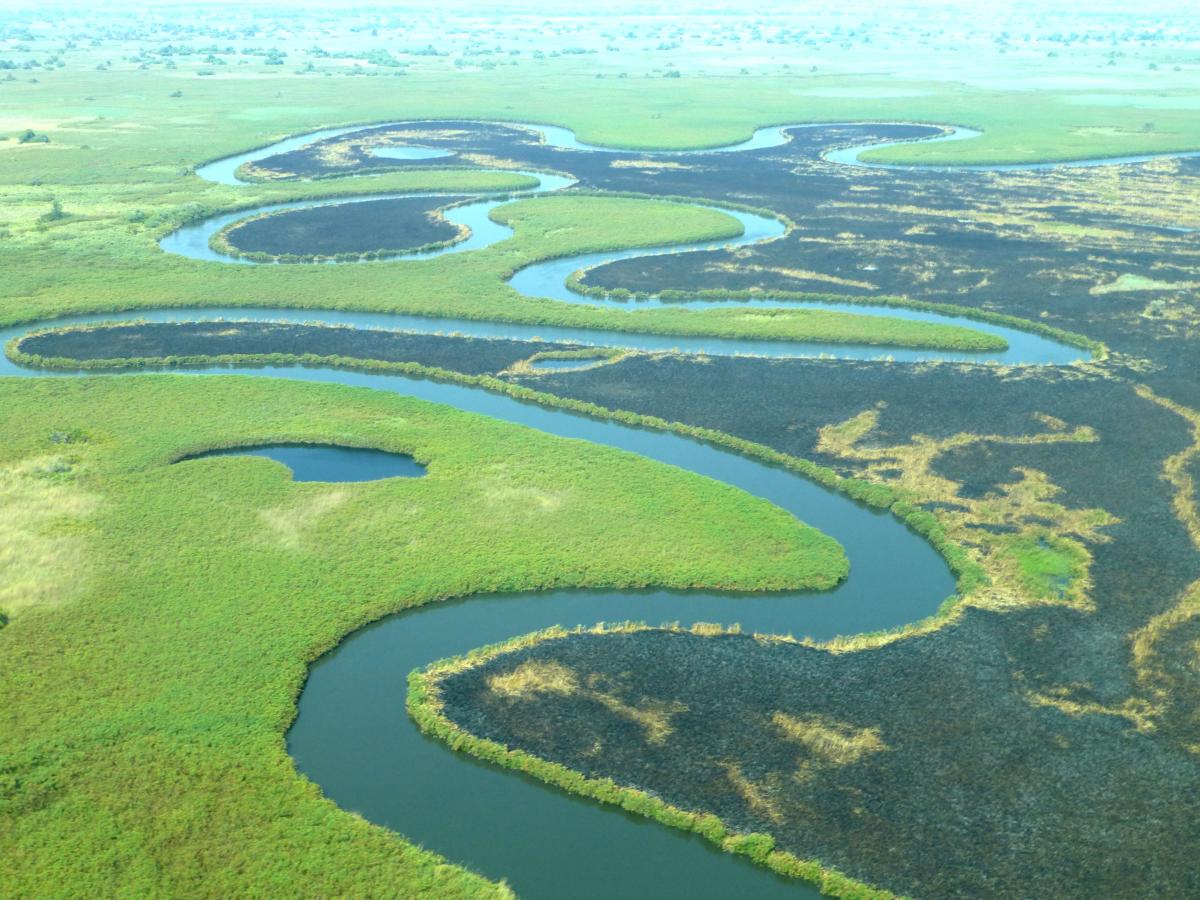World must act now to strengthen protection of most important wetlands
An open letter from International Organization Partners of the Ramsar Convention on Wetlands: In July this year the United Nations reported that the world is off-track to achieve Sustainable Development Goal 6 (SDG 6) – ensuring the availability and sustainable management of water and sanitation for all by 2030. This was a clear wake-up call: we are collectively not doing enough.

Photo: ©IUCN/Peter Howard
One of the targets under SDG 6 is the protection and restoration of water ecosystems such as wetlands. And yesterday we were given another loud wake-up call about how far we are from achieving this target with the release of the first ever Global Wetland Outlook under the Ramsar Convention on Wetlands. The authoritative report confirmed that we are degrading and losing our wetlands at an alarming rate. The Global Outlook highlights how natural wetlands have declined across inland, coastal and marine habitats, with serious impacts on wetland-dependent species. Wetlands – from rivers to coral reefs, alpine lakes to peatlands – provide habitat for thousands of species but 25% of species that need wetlands to survive are now threatened with extinction.
But wetlands are also critically important for the environmental services they provide to communities, cities and countries. These include providing food, fisheries and freshwater, reducing the impacts of flooding, and storing carbon. The economic and biodiversity value of wetlands far outweighs many terrestrial ecosystems – and yet they are disappearing faster than any other ecosystems. They provide society with huge value. In the USA alone, they provide US$23billion in storm protection. By degrading and draining our wetlands, we lose much more than what lives there, we also lose the diverse benefits they provide to society.
The Global Wetland Outlook serves as a barometer of wetland health, and a storm is brewing. Urgent action is needed now to protect all our wetlands, from rivers to coral reefs. When Ramsar Sites are threatened, Ramsar Advisory Missions provide an essential service to countries who are signatories to the Ramsar Convention. These Advisory Missions enable all countries to mobilise advice and apply expertise to help them tackle existing and future problems and threats to wetlands.
Protection and better management of wetlands not only helps to achieve SDG 6, but it also helps to achieve a range of goals where better water management is crucial to success. Goal 15 focusses on the protection, restoration and sustainable use of terrestrial ecosystems, including ensuring that the world’s most important wetlands are protected and restored.
As countries prepare for the 13th Ramsar Conference of Parties in Dubai in October we urge them to analyze the results presented in the Global Wetland Outlook and consider the critical role that Ramsar Advisory Missions play in protecting the world’s wetlands. We, International Organization Partners to the Ramsar Convention, would like to reiterate the importance of these Missions and call for the continued support and strengthening of Advisory Missions.
If we are to achieve the ambitious Sustainable Development Goals, preserving our wetlands must be an important cornerstone of national strategies due to their importance to nature and society. The Global Wetlands Outlook paints a picture of loss. We must act now to reverse this decline. We look to the Ramsar Conference of Parties in October to show the leadership and ambition needed to protect our wetlands.
#WEValueWetlands
***
Signatories:
BirdLife International: Melanie Heath, Director, Science, Policy and information
IUCN: James Dalton, Director, Global Water Programme
Wetlands International: Jane Madgwick, Chief Executive Officer
Wildfowl and Wetlands Trust: James Robinson, Director of Conservation
WWF: Stuart Orr, Freshwater Practice Lead



